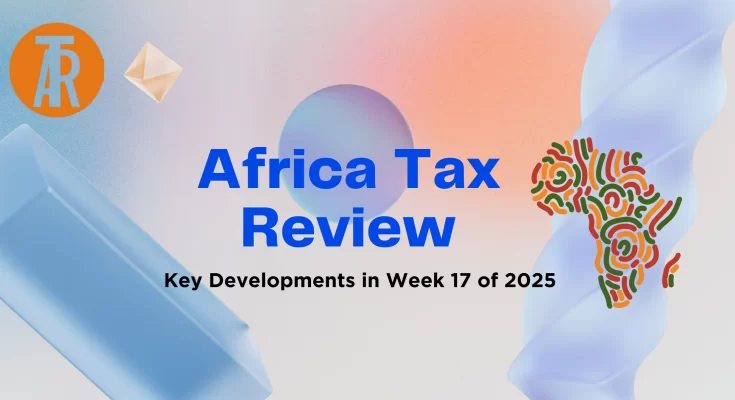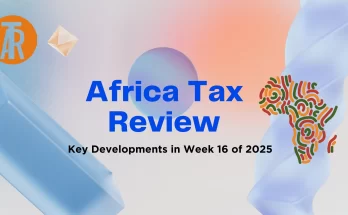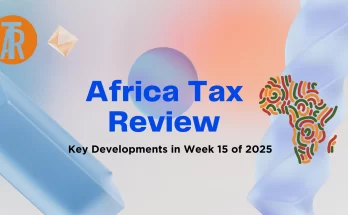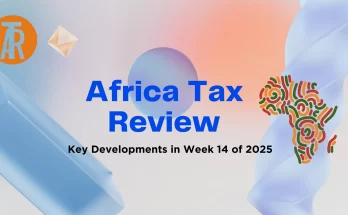Table of Contents
As African economies continue to grapple with global macroeconomic shifts and domestic fiscal constraints, taxation remains a central tool in balancing public revenue needs with socio-political stability.
Week 17 of 2025 was particularly eventful in South Africa, where strategic fiscal decisions and institutional enhancements reflected a dynamic shift in tax governance.

1. South Africa Withdraws VAT Increase Following Political Pushback
On April 24, 2025, South Africa’s Finance Minister, Enoch Godongwana, announced the withdrawal of a proposed VAT increase from 15% to 15.5% initially scheduled to take effect on May 1, 2025, with a further rise to 16% in 2026.
The reversal followed intense resistance from the Democratic Alliance (DA)—a key coalition partner—and public criticism over the regressive nature of the tax AP News, 2025.
The DA had filed a court application to block the VAT increment on the grounds that it would disproportionately burden low-income households, further straining their purchasing power amid inflationary pressures.
The High Court granted a temporary suspension of the implementation pending broader stakeholder consultation. In response, the National Treasury affirmed its commitment to fiscal consolidation through alternative non-tax measures.
The cancellation of the VAT hike left an estimated R75 billion ($4 billion) gap in the medium-term expenditure framework (MTEF).
The Finance Ministry disclosed plans to present a revised budget to Parliament on May 21, 2025, with a focus on expenditure trimming, improved compliance measures, and debt control Reuters, 2025.

2. SARS Expands Digital Tax Service Capabilities
In a bid to modernize South Africa’s tax administration and enhance taxpayer compliance, the South African Revenue Service (SARS) announced significant digital reforms on April 29, 2025. Notably, SARS now enables the electronic filing of the following:
Donations Tax Returns (IT144)
Withholding Tax on Royalties Declarations (WTR01)
These declarations can now be submitted through the SARS Online Query System (SOQS), aligning with the agency’s strategic vision for a paperless, smart tax system. SARS emphasized that these enhancements would reduce compliance costs, improve response times, and e
ncourage voluntary compliance by simplifying processes SARS
Official Website, 2025.
The move reflects global best practices in digital tax administration and positions SARS as one of Africa’s most technologically advanced tax authorities.
Africa Tax Review: Key Developments in Week 16 of 2025

3. Market Reactions and Economic Forecast Adjustments
Following the decision to cancel the VAT hike, the South African rand maintained relative stability, signaling market confidence in the government’s willingness to maintain fiscal credibility even amid political pressures Reuters Currency Update, 2025.
However, economists revised the country’s 2025 economic growth projection downward to 1.5%—from an earlier forecast of 2.1%—citing both global trade uncertainties and domestic supply-side weaknesses.
The challenges are exacerbated by the need to fill the fiscal gap without burdening consumers through consumption taxes Reuters Economic Outlook, 2025.

4. Broader Implications for African Tax Policy
While Week 17’s tax highlights centered primarily on South Africa, the implications resonate continent-wide.
The withdrawal of a consumption tax increase amidst inflation suggests a cautionary tale for other African governments seeking quick fiscal fixes through regressive taxes. It reinforces the principle that equitable tax systems must consider capacity to pay and socio-economic context.
Furthermore, the success of SARS’s digital rollout serves as a benchmark for peer African revenue authorities pursuing automation, efficiency, and compliance-driven reforms.
Countries like Nigeria, Kenya, and Rwanda are also investing in taxpayer e-portals, real-time reporting systems, and digital identity integration to improve revenue mobilization.
Conclusion
Week 17 of 2025 demonstrated the delicate balancing act facing African governments: the need to sustain public finances without triggering economic backlash. South Africa’s VAT decision underscores the impact of political coalitions and civic activism in shaping tax policy.
Meanwhile, SARS’s technological advancements showcase the future of tax administration on the continent—smart, accessible, and transparent.
With the revised South African budget scheduled for May 21, stakeholders across Africa will be closely watching how the country repositions its fiscal framework amid competing demands. The lessons from this week affirm the central role of taxation in shaping inclusive, responsive governance.
Olatunji Abdulrazaq CNA, ACTI, ACIArb(UK)
Founder/CEO, Taxmobile.Online




